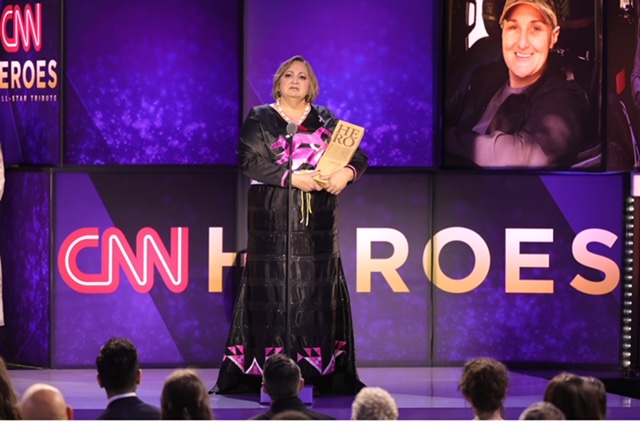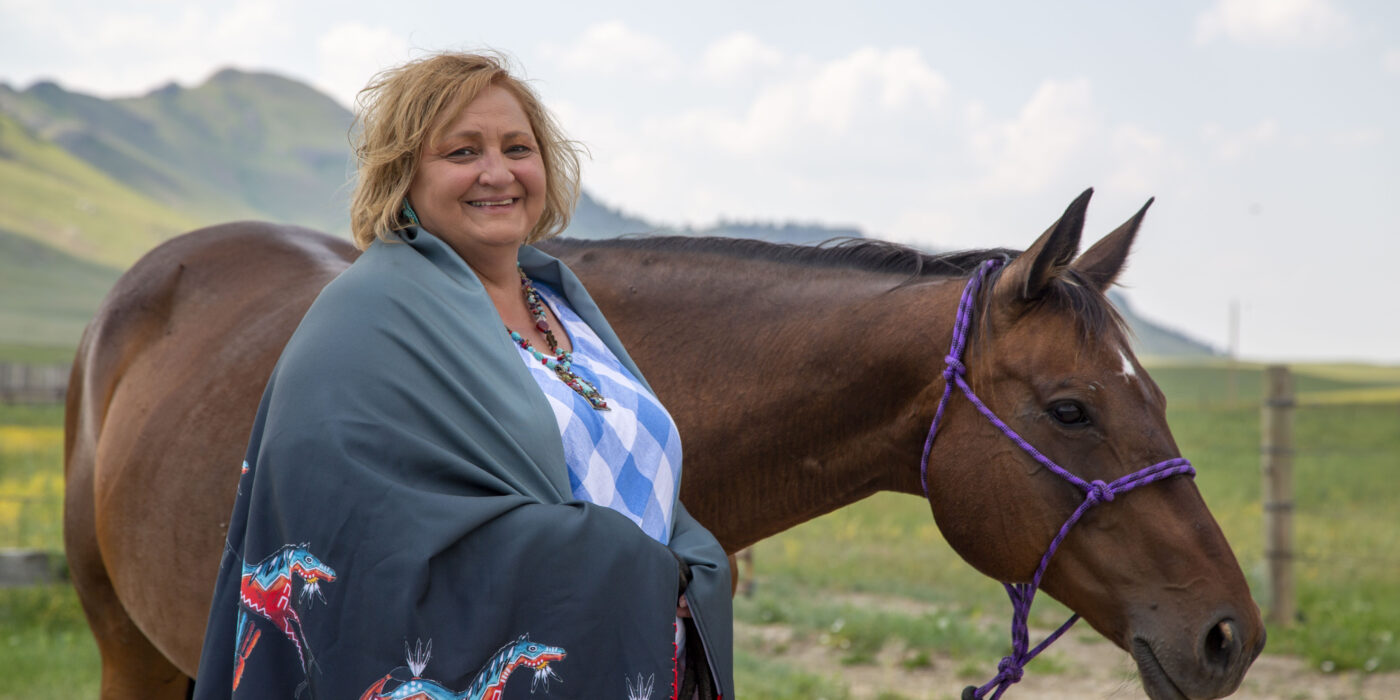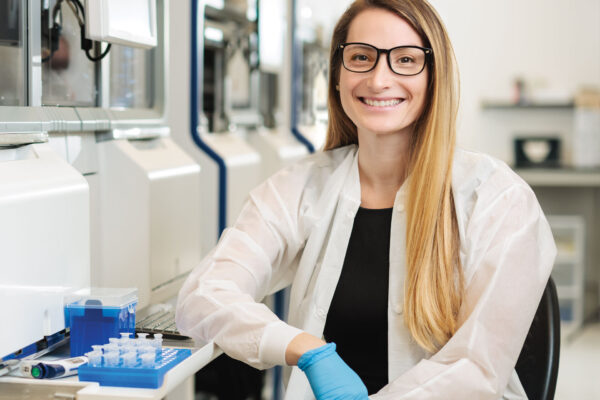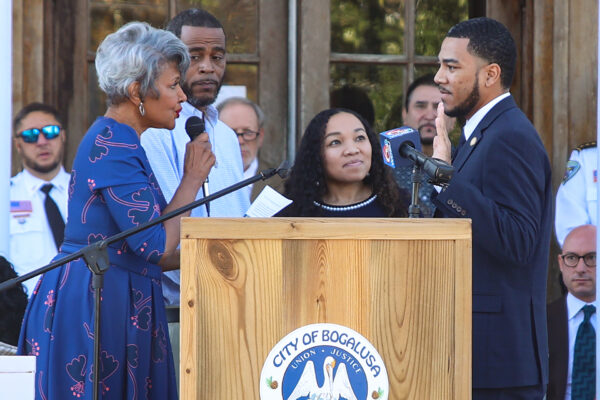As Tescha Hawley, MSW ’02, drives along the rural roads near Harlem, Montana, she rattles off some of the recent developments of her nonprofit, the Day Eagle Hope Project. Her phone’s camera bounces on the dashboard as she sketches out her plans, every example underscored by a desire to do even more.
To start, she just learned that a $2 million grant proposal she wrote on behalf of the Fort Belknap Indian Community has gone through. The Day Eagle Hope Project will administer the USDA funds, allowing locally sourced foods to reach residents in need. Hawley has already acquired a lot to build a distribution center for the influx of food.
“We’ll be coordinating the purchasing from local farmers and the state of Montana and getting the food back out to the people,” Hawley says. “And I hope within that food distribution center, we’ll be able to have small storefronts so people can sell their goods and help the economy in our little town.”
Just next door to the planned distribution center, Hawley’s also in the process of buying a 17-bed housing unit. “There was a senior center program there, but they shut it down when new owners bought it,” she says. “They didn’t have access to meals, to quality care or even just socialization. So I hope once I — fingers crossed — get this building purchased, I could open that facility back up to the community.”
A separate grant, nearly $500,000 from the state of Montana, will allow for the creation of a drop-in center for those with mental health needs or substance abuse issues. An even longer list of goals is just out of reach, at least for the moment, as Hawley pursues more capital.
Ever since attending the Brown School through a scholarship from the Kathryn M. Buder Center for American Indian Studies, Hawley has seen herself as a community developer with her feet planted firmly on the “macro” side of social work — helping communities, rather than focusing on individuals. Yet when she started the Day Eagle Hope Project, she had no idea that the nonprofit would reach its current scope. It started in 2017 as a patient navigation service.

Diagnosed with breast cancer in her mid-40s as a single mother of two, Hawley had experienced frustration and fear during her treatment. Despite her master’s degrees in social work from WashU and health administration from Montana State University Billings, she felt confused about the options and costs. The logistics alone, driving hundreds of miles off the reservation for chemo, radiation or even simple bloodwork, took a toll. She knew she wasn’t alone in navigating this painful reality.
When Hawley filled out the paperwork to start her nonprofit, she had been in cancer remission for just two months. After taking unpaid medical leave, she had $250 in her checking account. Still, she wanted to help others.
“I really started it as a way to bridge our culture with the medical world,” Hawley says. “I thought, ‘How could an elder in our community translate all these medical words and understand how this is affecting their health?’”
At the start, she spent her time driving patients to Billings or elsewhere for their medical appointments. She connected residents with social services and helped pay for gas and hotel stays. Then COVID hit.
“My world shifted from patient navigation to food sovereignty because everybody was on lockdown,” Hawley says. “I wasn’t even thinking of food, but we live in a community where there are so many gaps in services and the needs are so great. I was able to purchase a little shipping container, and my tribe donated me an old cop car. And I literally went door to door, myself and my kids, and we distributed food to everybody that was shut in.”
For all these efforts, Hawley was named a Top Ten CNN Hero last year. The recognition brought her exposure to international funders and helped her see a path toward doing having an even greater impact in her community. Through CNN, she became involved with the Elevate Prize Foundation, traveling to Miami in June to network and receive training.
“I know I’m growing. I know my credibility is getting out there. I know that in this world, funders look at your education and your experience, so my education from WashU has really helped me.”
Tescha Hawley
“There were two or three investors there that only invest in the millions to nonprofits, but in order to be in on that level, you had to have already managed a million-dollar nonprofit organization,” Hawley says. “That really opened my eyes to how big this world is.”
For now, that world seems attainable but at a distance. Hawley still uses the donated police car to get around. Her office is still a makeshift storage unit that her cousin (who, sadly, has since passed away from cancer) helped retrofit by adding walls. She also is getting a license to be a mental health therapist, since the nonprofit doesn’t generate enough money for her to work for it full-time.
“So here I am, still a social worker,” Hawley says. “I know I’m growing. I know my credibility is getting out there. I know that in this world, funders look at your education and your experience, so my education from WashU has really helped me.
“So we’ll see where this takes me. I’m invested. I’m committed. This is where I’m supposed to be. Even though the road is hard.”



